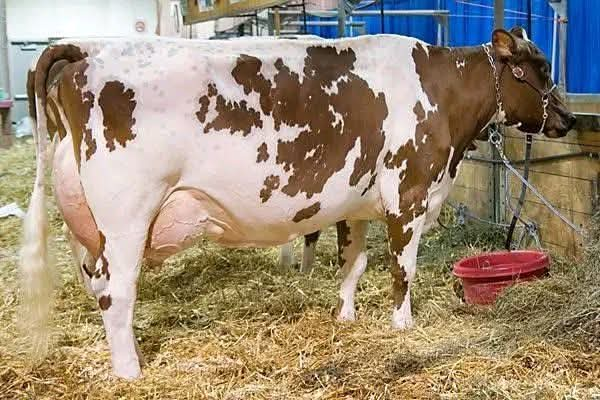Jersey Cows: Small Body, Big Milk – The Ideal Dairy Breed for Smart Farmers
Jersey Cows: Small Body, Big Milk – The Ideal Dairy Breed for Smart Farmers
Jersey cows have gained popularity among small and mid-sized dairy farmers thanks to their exceptional milk production, adaptability, and economic efficiency. Despite their modest size, these cows are high performers in the dairy world and deliver impressive returns.
1. Appearance and Breed Identity
Jersey cows range in color from light tan to a deep reddish-brown. They’re easy to recognize with their dark hooves, black switch tail, and a lighter-colored face. Their refined, delicate look makes them stand out among other breeds.
2. Efficient Size, Better Management
Females weigh about 350–400 kg, while bulls grow up to 700 kg. This compact frame means Jerseys consume less feed, require less housing space, and are easier to handle—ideal for small landholders and urban farmers.
3. Daily Milk Production
Under proper feeding and care, a Jersey cow can produce 15–25 liters of milk per day. The yield can vary depending on diet, genetics, and environment, but even at the lower end, the quality of milk remains unmatched.
4. Rich, Nutrient-Loaded Milk
Jersey milk contains around 4.5–5% butterfat, making it perfect for making ghee, cheese, yogurt, and butter. It also contains higher levels of calcium, protein, and CLA (Conjugated Linoleic Acid), which supports heart health and boosts immunity.
5. Calm Disposition, Easy Handling
These cows are known for their gentle nature. They are cooperative during milking, making them suitable for beginners, women, and youth entering dairy farming.
6. Adaptability and Disease Resistance
Jerseys thrive in both highland and lowland climates. They have solid resistance to many common diseases, reducing the cost of treatment and loss of production.
7. Long-Term Producers
Jerseys can remain productive for 12–15 years, ensuring extended return on investment compared to breeds with shorter lifespans.
8. Feed Efficiency
They convert feed into milk with high efficiency. This reduces daily operational costs and boosts profit margins per liter sold.
9. Environmentally Smart
Their smaller size means lower water use, less waste, and reduced methane emissions per liter of milk—perfect for eco-conscious dairy systems.
10. Value Addition Opportunities
From thick cream to artisanal cheeses, Jersey milk unlocks profitable opportunities through value-added products.




